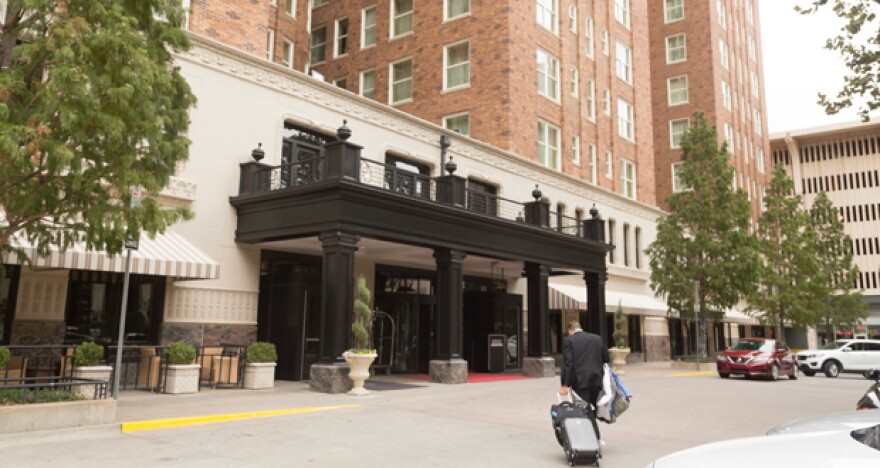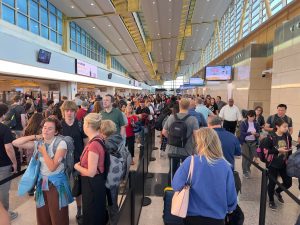Wednesday, June 18, 2025
Orlando, Florida, one of the world’s leading tourist destinations, continues to thrive as a hub for international visitors, contributing billions of dollars to the state’s economy. Renowned for its theme parks, luxury hotels, and vibrant entertainment scene, the city generates substantial revenue from tourism, particularly through its hotel taxes. In 2024, Orange County collected a record-breaking $364 million from the 6% Tourist Development Tax (TDT) imposed on hotel room stays, the bulk of which comes from tourists visiting attractions like Walt Disney World, Universal Orlando Resort, and SeaWorld Orlando.
However, despite the financial boon brought by tourism, local residents and policymakers are increasingly concerned about how these funds are being allocated. While significant portions of TDT revenue flow toward tourism promotion and the expansion of the Orange County Convention Center, essential public services and infrastructure remain underfunded. This disparity between the tourism-driven revenue and the allocation for local community needs has sparked frustration among residents, particularly as tourism continues to place a strain on local resources.
Advertisement
The Disparity in Fund Allocation
Advertisement
Under Florida law, the majority of TDT funds are required to be used for tourism advertising and promotional activities. In Orange County, nearly 40% of the collected hotel taxes, or approximately $145 million, are directed to Visit Orlando, the region’s tourism marketing organization. Additionally, substantial funds are allocated to the maintenance and expansion of the Orange County Convention Center, which is the second-largest in the United States. While the convention center generates significant economic activity, its operational costs and expansion projects have raised questions about the balance between tourism infrastructure and community development.
In contrast, funds allocated for local needs, such as transportation, affordable housing, and public safety, receive a much smaller portion of the TDT revenue. For example, less than 5% of the collected funds—about $17 million—are allocated to arts and cultural organizations in the region. While this sum may seem substantial, it is a fraction of the millions being spent to promote tourism and expand convention facilities. Local infrastructure, including roads and public transit, which are heavily impacted by the influx of tourists, often remains underfunded and reliant on other revenue sources, such as property taxes.
Legislative Efforts for Reform
In an attempt to address these imbalances, State Senator Carlos Guillermo Smith (D-Orlando) introduced several bills during the 2025 legislative session aimed at redirecting a portion of the TDT revenue toward community development. His proposals included using hotel tax funds to support local transportation projects, such as the proposed SunRail extension and public bus services, which are often overwhelmed by the demands of tourism. Smith’s legislation also sought to allow funds to be used for public facilities, such as affordable housing projects, that would directly benefit local residents and alleviate the strain on public services.
Smith’s proposals were widely supported by Central Floridians, particularly those who feel the pressure of rising taxes and underfunded infrastructure. However, despite significant public backing, the bills were ultimately blocked during the final stages of the legislative process. Republican lawmakers, many of whom receive substantial donations and political support from the tourism industry, sided with tourism advocates, arguing that diverting funds from tourism marketing could undermine the state’s economy and tourism-driven job market.
In one of the more controversial proposals, Senator Smith called for a requirement that tourism interests contribute at least one private dollar to Visit Orlando for every public dollar received. This measure, designed to ensure that the tourism industry takes some responsibility for promoting and funding the infrastructure that supports tourism, was quickly killed, with tourism lobbyists arguing against it. Most politicians who benefit from donations from major tourism entities, such as Disney and Universal, were reluctant to pass legislation that could reduce the amount of public funds flowing to these industries.
Community Impact and Public Sentiment
For local residents, the situation remains deeply frustrating. Orange County’s infrastructure—from roads and public transit to emergency services—is heavily impacted by the influx of millions of tourists each year. However, the local residents who bear the burden of these impacts often do not see the benefits of the hotel tax revenue. Instead, they face the prospect of increased local taxes to fund much-needed improvements to roads, transportation, and public housing.
The ongoing imbalance between tourism spending and local infrastructure funding has sparked widespread discontent among residents who feel they are being sidelined in favor of the tourism industry. While tourism certainly drives the local economy, critics argue that the prosperity generated by tourism should also benefit the people who live and work in the region. Many believe that a more equitable distribution of TDT funds could help address some of the region’s most pressing challenges, such as the need for public transit expansion and affordable housing.
A Vision for Reform
Despite the setbacks, Senator Smith remains optimistic about the possibility of future reform. While the bills introduced in 2025 were defeated, Smith intends to continue advocating for a shift in how TDT funds are used. He believes that the next legislative session may provide another opportunity to push for changes that would allow Orange County to use its hotel tax revenue to address the needs of local residents.
However, for real change to occur, Smith and other local advocates argue that the public must remain engaged and vocal about the issue. Public awareness and grassroots pressure will be essential if the imbalance between tourism funding and local community needs is to be corrected.
Tourism and Local Communities: Striking a Balance
The challenge facing Orlando and Central Florida is not unique to the region. Many tourist destinations across the U.S. and abroad face similar issues of balancing the demands of tourism with the needs of local communities. The question of whether tourist tax revenue should be used to fund local infrastructure, including transportation and housing, is a critical one as cities like Orlando continue to grow and develop.
Other tourist towns, such as Las Vegas, have adopted a different approach, using hotel taxes to support local public services, including roads, parks, and even education. By investing in local infrastructure, these cities ensure that the benefits of tourism are more broadly shared among residents. This approach could serve as a model for cities like Orlando, where tourism is a major economic driver, but where local needs are often neglected.
Looking Forward: The Need for Change
As Orlando and Central Florida continue to thrive as major tourist destinations, it is imperative that tourism’s economic success is matched by investments in the communities that make these destinations possible. Legislators must balance the needs of the tourism industry with the needs of local residents, ensuring that tourism benefits everyone. Until then, the debate over the equitable use of hotel tax revenue is likely to remain a contentious issue.
Conclusion
Orlando’s hotel tax revenue is undeniably a source of economic prosperity, but the disparity between tourism-focused spending and community investment cannot be ignored. While recent legislative efforts to redirect hotel tax funds to local infrastructure have been blocked, the ongoing discussion is crucial to ensuring that the benefits of tourism are more evenly distributed. With continued advocacy and public engagement, there remains hope for future reform that could lead to a more balanced approach to tourism funding and community development.
Advertisement
Tags: Carlos Guillermo Smith, community funding, florida legislature, Florida tourism revenue, hotel tax reform, Orange County TDT, orlando convention center, Orlando hotel tax, Public Infrastructure, Visit Orlando funding
Advertisement
Tags: Carlos Guillermo Smith, community funding, florida legislature, Florida tourism revenue, hotel tax reform, Orange County TDT, orlando convention center, Orlando hotel tax, Public Infrastructure, Visit Orlando funding
I want to receive travel news and trade event update from Travel And Tour World. I have read Travel And Tour World’sPrivacy Notice.
Wednesday, June 18, 2025
Tuesday, June 17, 2025
Wednesday, June 18, 2025
Wednesday, June 18, 2025
Wednesday, June 18, 2025
Tuesday, June 17, 2025
Wednesday, June 18, 2025
Tuesday, June 17, 2025




